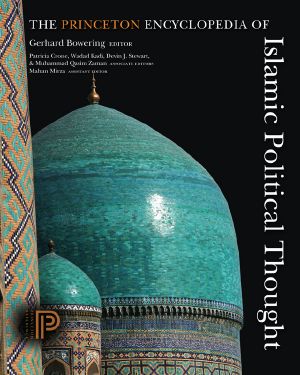The Princeton Encyclopedia of Islamic Political Thought

- Authors
- Bowering, Gerhard & Bulliet, Richard & Cook, David
- Publisher
- Princeton University Press
- Tags
- reference , ref01000
- ISBN
- 9780691134840
- Date
- 2011-12-31T00:00:00+00:00
- Size
- 5.25 MB
- Lang
- en
An indispensable guide to Islamic political thought from Muhammad to the twenty-first century
The first encyclopedia of Islamic political thought from the birth of Islam to today, this comprehensive, authoritative, and accessible reference provides the context needed for understanding contemporary politics in the Islamic world and beyond. With more than 400 alphabetically arranged entries written by an international team of specialists, the volume focuses on the origins and evolution of Islamic political ideas and related subjects, covering central terms, concepts, personalities, movements, places, and schools of thought across Islamic history. Fifteen major entries provide a synthetic treatment of key topics, such as Muhammad, jihad, authority, gender, culture, minorities, fundamentalism, and pluralism. Incorporating the latest scholarship, this is an indispensable resource for students, researchers, journalists, and anyone else seeking an informed perspective on the complex intersection of Islam and politics.
Includes more than 400 concise, alphabetically arranged entries
Features 15 in-depth entries on key topics
Covers topics such as:
Central themes and sources of Islamic political thought : caliph, modernity, knowledge, shari'a, government, revival and reform
Modern concepts, institutions, movements, and parties : civil society, Islamization, secularism, veil, Muslim Brotherhood
Islamic law and traditional Islamic societies : justice, taxation, fatwa, dissent, governance, piety and asceticism, trade and commerce
Sects, schools, regions, and dynasties : Mu'tazilis, Shi'ism, Quraysh, Mecca and Medina, Baghdad, Indonesia, Nigeria, Central Asia, Ottomans
Thinkers, personalities, and statesmen : Mawardi, Shafi'I, Saladin, Tamerlane, Akbar, Atat�rk, Nasser, Khomeini
Contains seven historical and contemporary maps of Muslim empires, postcolonial nation-states, populations, and settlements
Guides readers to further research through bibliographies, cross-references, and an index
-- "Perspectives on Terrorism"